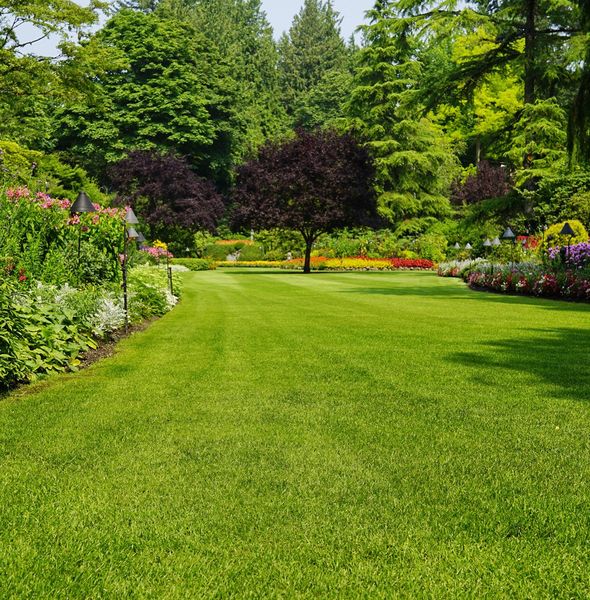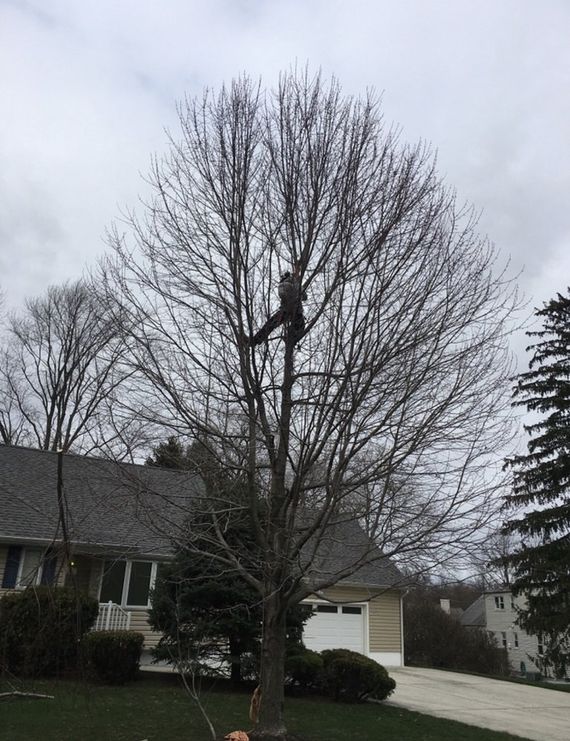Why Choose Organic Lawn Care?
Do you have children? Are you concerned? Would you like to reduce the synthetic chemicals used on your lawns & landscape? Organic care
is not only better for your family, pets, and the environment, but also for the longevity of your tree and landscape investment. Chemical lawn care companies rely heavily on large amounts of synthetic chemical fertilizers and pesticides. These chemicals can leach into our water, our homes, our environment, our bodies, and our children's bodies. Children and pets are more vulnerable to chemical exposure because of their small size, developing organs and their behaviors, such as playing on lawns and putting objects in their mouths.
Choose Mickiewicz Arbor Experts, LLC
for organic lawn care
in Middlesex County, New Jersey, that is safe for your family. Call us today at (732) 814-2466.
Our Program
An organic land care program will help you protect your family'/s health, improve the health of the landscape, and protect the environment.
The guiding principle of organic land care is ecological stewardship. The watchword as in the ancient medical tradition is "First, do no harm." This applies to many aspects of the health of the land and the people living on it. One of the most harmful practices to be avoided is the use of synthetic chemicals like pesticides and fertilizers.
Pesticides
are chemicals that are designed to kill living things. Different chemicals are formulated to kill different organisms (insecticides for insects, herbicides for weeds, fungicides for diseases), but many pesticides kill desirable organisms in addition to those they target. There is growing evidence of the hazards associated with long-term use of pesticides. Blood tests show that people in all areas of the world, including those where no pesticides are used, have detectable levels of pesticides in their blood and fatty tissues. Pesticides exposure in humans has been associated with birth defects; numerous cancers, including non-Hodgkin's lymphoma, (the second fastest growing cancer in the U.S.); Parkinson's disease and other neurological disorders; immune systems problems; and male infertility.
Synthetic fertilizers
are energy-intensive and fossil fuel-based and can be harmful to humans, animals, and the environment. Exposure to high levels of nitrogen in drinking water has been shown to cause methemoglobinemia or "blue baby syndrome," a form of nitrate poisoning in infants, and has been linked less conclusively to high blood pressure, some cancers, birth defects and stillbirths.
There is little research about the combined effects of commonly used chemicals. Young children (including the unborn) are particularly vulnerable to chemical exposure due to their body size, rapidly developing brains, hormonal and nervous systems, and behaviors (such as crawling on the ground and putting Searchable PDF created by OCR.space (Free Version) their fingers in their mouths). Cats and dogs that play in or eat chemically treated grass absorb chemicals through their skin or digest them. Some pets have been fatally poisoned or developed higher rates of cancer. Cats are very sensitive to such chemicals and when exposed to pesticides become noticeably more aggressive (Rachel Carson Council).
Chemicals used in lawn and yard care do not stay where they are applied. When applied to the ground, chemicals can be carried into buildings and cars on shoes and paws. Without exposure to sunlight and water, they breakdown very slowly and can remain for months in carpets, toys, and dust bunnies.
Chemicals also move in the environment. Rainwater washes them down streets and storm drains to streams, wetlands, lakes, and oceans. Rainwater soaking into the ground carries fertilizers and pesticides into groundwater, contaminating wells and aquifers. Pesticides absorbed by plants or insects can accumulate in the food chain as birds. Fish, other wildlife, or people feed on the contaminated organisms. When chemicals are sprayed, breezes can carry the droplets to neighboring properties or even miles away. Cleaning sprayers and dumping the wash water down the drain sends pesticides and fertilizers directly into a septic system (and the groundwater) or a sewage treatment plant (and the local river).
Schedule Your Service
Our team is ready to help you take care of your lawn. Call us now to schedule: (732) 814-2466.

